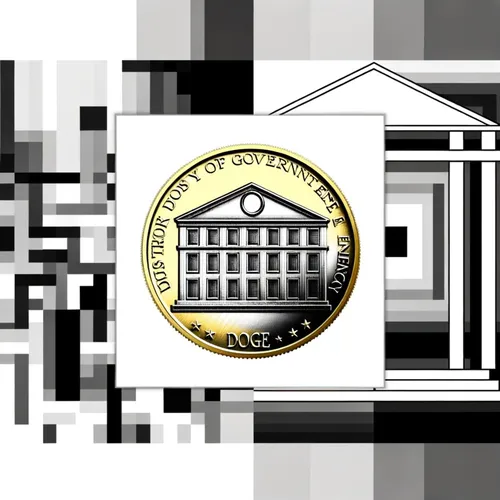DOGE Revolutionizes Government: How Blockchain and AI Are Transforming Public Service Efficiency and Saving Billions
- Author
- Quiet. Please
- Published
- Tue 17 Jun 2025
- Episode Link
- https://www.spreaker.com/episode/doge-revolutionizes-government-how-blockchain-and-ai-are-transforming-public-service-efficiency-and-saving-billions--66594321
Listeners, in 2025, the U.S. government launched a bold experiment in administrative streamlining with the creation of the Department of Government Efficiency, or DOGE—an agency whose name nods to the internet-famous Dogecoin, but whose mission is anything but a meme. The DOGE Agenda, set forth by executive order in January, aims to modernize federal technology, cut through red tape, and inject private-sector agility into public service operations. This effort comes amid a global wave of governments embracing blockchain and digital assets to boost transparency, efficiency, and public trust.
The big headline: DOGE claims to have saved $180 billion for taxpayers in just its first half-year, though independent analysis estimates the net benefit closer to $135 billion, after accounting for costs. Whether one believes the official numbers or the more conservative estimates, the savings are substantial—making it a significant case study for governments worldwide. Many point to its use of blockchain technology not just for recordkeeping, but for automating processes and even tracking the impact of federal spending in real time, leveraging lessons from global finance innovations like Hong Kong’s tokenized green bonds.
There’s another twist: the “DOGE Coin of Bureaucracy.” No longer a parody, the Department of Government Efficiency token, now traded on several exchanges, has attracted attention from both crypto enthusiasts and good-government advocates. TradingBeast forecasts its value rising above two cents by the end of the year, signaling broad interest in what the coin represents—government-backed innovation, not speculation.
The integration of blockchain, AI, and IoT across agencies signals a shift: the once-stodgy machinery of government is learning to move at digital speed. DOGE’s advances, challenges, and even doubts are being closely watched, both domestically and abroad, as policymakers rethink how to deliver for citizens in an era of relentless technological change. The next chapters of this story may determine whether DOGE becomes a model for the future or just a fleeting novelty in the sprawling ecosystem of government reform[1][3][5].
